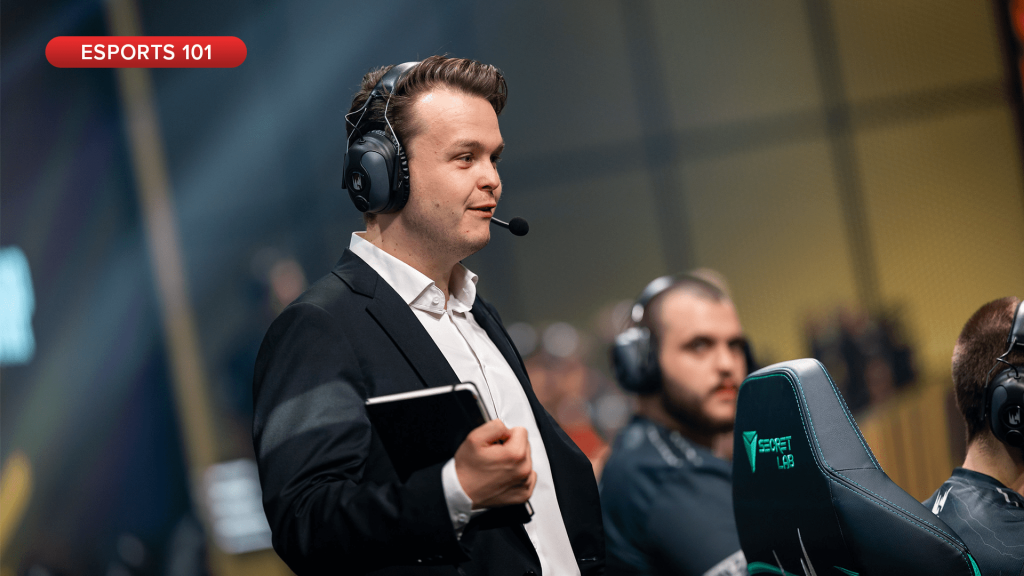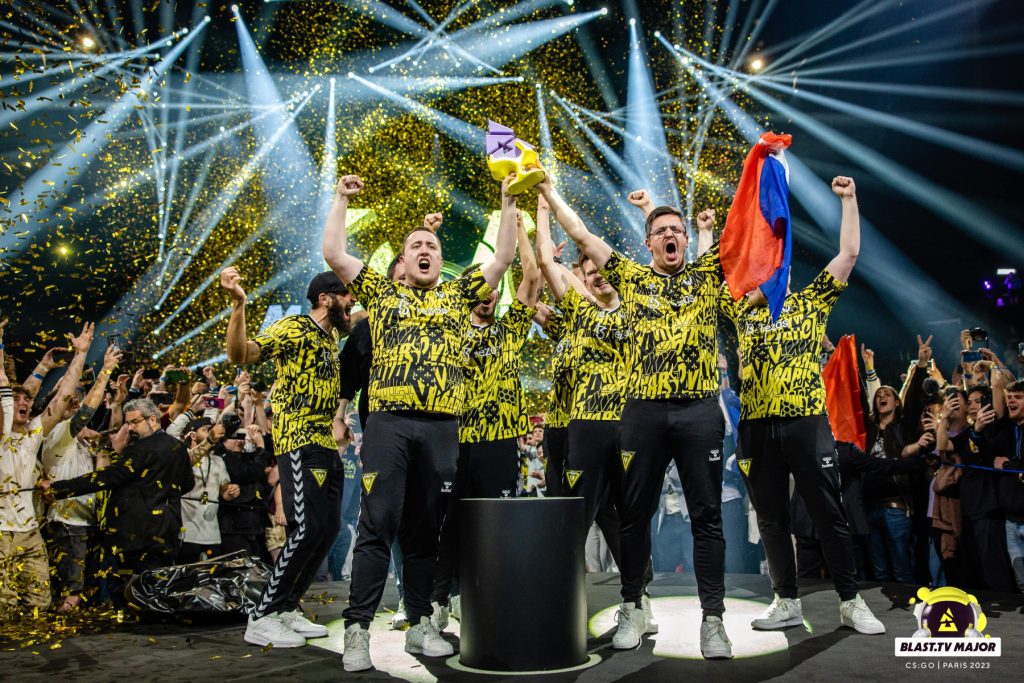
Esports coaching has become a crucial part of the competitive esports ecosystem. Many esports players — professional and non-professional — actively seek coaching opportunities to develop skills or bolster their career trajectory and potential.
However, how does someone become an esports coach?
Traditional sports have developed highly specific qualifications that guide an individual into coaching. In football, where top division teams in Europe can even be fined if managers do not have the right qualification. Yet, in esports, such stringent regulation isn’t implemented.
For some games, a player’s path-to-pro has even been laid out by the game publisher or third-party operator. This ranges from VALORANT’s new esports-focused in-game mode to FACEIT’s ever-growing grassroots and developmental leagues. Yet, the journey of an esports coach feels like a guarded secret, with little guidance on reaching the position.
The rapid and recent development of this role as a viable career path means that the process of becoming an esports coach has a relatively new format. Still, similarly to most jobs, it undoubtedly involves a significant degree of self-organisation and personal development.
What does an esports coach do?
Before jumping into the ‘how’, it’s important to establish what esports coaches do.
Esports coaches are crucial in providing consistent performance for esports teams. As with traditional sports, they are responsible for building skills, communication, relationships and strategies within a team, or an individual player’s abilities, initiative and critical thinking. In essence, esports coaches oversee every performance-related aspect of a team’s journey.
As expected, the role requires a comprehensive knowledge of the game in question. For example, JLINGZ Esports’ Apex Legends Pro-League Analytics Coach, Alex ‘coldjyn’ Nicholls, is primarily responsible for guiding players through specific elements of the game: “I work primarily around strategising, preparation, and analysis. It’s my job to approach the game from an abstract point of view and find what I believe to be the fundamentally most valuable parts of the game.
“This ranges from characters to weapons and individual positions on the map, and then how these all interact. I’m also in a unique position to analyse and review the team. I see what our weak points are, and then see how we can improve them.”
There are many different types of coaching positions. Whilst most teams will be operated by a head coach, there are sometimes roles that look into finite performance analysis, such as draft coaching. Coaching also doesn’t always have to relate to in-game performance. As such, some coaches may focus on aspects like well-being and mental health, all while working alongside sports psychologists.
Does a coach have to be a master at the game to coach a player? Not necessarily. In League of Legends — a MOBA (Multiplayer Online Battle Arena) game — there are many similarities with other esports titles, despite differences in gameplay, that can be applied to coaching players.
EXCEL Esports’ League of Legends Coach, Chrisophe ‘Kaas’ van Oudheusden, highlighted: “MOBAs are similar to other esports games. Every game requires strategy (CSGO; Call of Duty; VALORANT; etc). The shooting aspect is just a different kind of “skill” but the ideas behind coaching are the same.”
Naturally, different skill sets are attached to differing coaching positions, whether this is due to the esports title or specific coaching role. To become an esports coach, determining your strengths may give a direction to the best possible role. However, all coaches must be able to effectively oversee and guide their teams through the challenges they face. Here’s an overview of that from British Esports.
Are specific qualifications required to be an esports coach?
Currently, there is no expectation for coaches to achieve a specific qualification, with the exception of sports psychology coaching. Regardless, there are growing views that coaches wanting to work for professional teams should either have experience in the field or some sort of training.

To provide the solutions to these very real issues in esports, institutions such as the International Federation of Esports Coaches and the Esports Coaching Academy have been established, both providing more structured environments to learn coaching skills and gain related qualifications. This includes a focus on non-esports specific but vital areas of coaching, such as safeguarding. A more in-depth look at the ECA in Iceland can be read here.
Similarly, both the IFoEC, the ECA, and the likes of the Global Esports Academy and Saudi Esports Academy provide educational resources and courses focusing on coaching and skills related to the role.
Core skills are required to be an esports coach such as having a secure, detailed and confident knowledge of the game in question. Alongside this, they must be able to motivate and support their players. This requires a degree of knowledge, experience working in a team setting and interpersonal skills.
“‘You can have the best ideas in the world, but if no one will listen to you, you are not a good coach,” explained Coldjyn. “You also need to understand that you can and will be wrong sometimes, and that is ok. However, if you think you’re right, you have to be able to demonstrate it clearly.”
Kaas also stresses the importance of communication skills in coaching: “Communication is a very underrated aspect of coaching in esports. The needs of communicating should be based on the personalities your players have. Some people like an open direct approach, some respond better to one-on-one feedback. Words are a powerful tool that can help you reach your team goals.”
Seeking a greater understanding of these core coaching skills has become more crucial in recent years. As a result, organisations such as SIDO aim to provide information that may be beneficial. The company’s research covers topics such as communication analysis and performance models, allowing aspiring coaches to develop an in-depth understanding of the behavioural fundamentals influencing competitive performance.
So, do coaches need to have been professional esports players?
There is a misconception that coaches must have experience as professional esports players. However, this is not always the case.
According to Coldjyn, an understanding of the game is crucial, but professional competitive experience is not a requirement. Although, he does admit you develop an understanding of the game by playing at a high level.

Instead, Coldjyn emphasises networking with others and working up the ladder from more grassroots teams to professional organisations.
“The hardest part is convincing the first person to hear you out. It gets easier after that point, as you can network from one to another,” he said. “If everyone you speak to gives you a good review, then you can climb the ladder relatively easily. Most people want to improve, and if they believe you can help them with that, they’ll want to work with you.”
What are the steps that can be made to get into esports coaching?
One of the most important steps in becoming an esports coach is networking. For better or for worse, this is synonymous with career pathways in esports, largely due to the lack of structure in the sector when it comes to industry-tailored qualifications.
As stressed by Apex Legends coach Coldjyn, networking significantly boosts your ability to gain a reputation and climb the ladder within your respective esport. This includes having a strong online presence, as many coaching roles in grassroots organisations remain almost entirely online.
Organisations such as the International Federation of Esports Coaching and the Esports Coaching Academy can also be incredibly useful in your journey to becoming an esports coach. Even though there is no current expectation of obtaining certain coaching qualifications in esports, learning how to develop core skills relating to the role is nonetheless beneficial and demonstrates a commitment to the career path. Whether this is done academically or through experience is up to the individual.
Finally, you must be sure of your decision to work towards becoming an esports coach. In the words of Kaas, “You should have a passion for the game and coaching. If you can’t get joy out of it, then it’s better not to start.”
